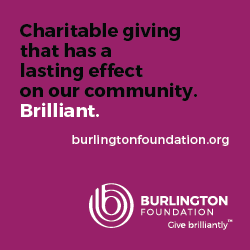 By Staff
By Staff
October 16th, 2017
BURLINGTON, ON
The Burlington Foundation shared the 2017 Vital Signs report last week.
The document is issued every two years and is seen as an important road map for where we are as a community and where the community can work together to make change happen in the areas of youth and young adults, mental health and wellness, housing, the environment and seniors.
Highlights from Vital Signs® 2017 Report part one:
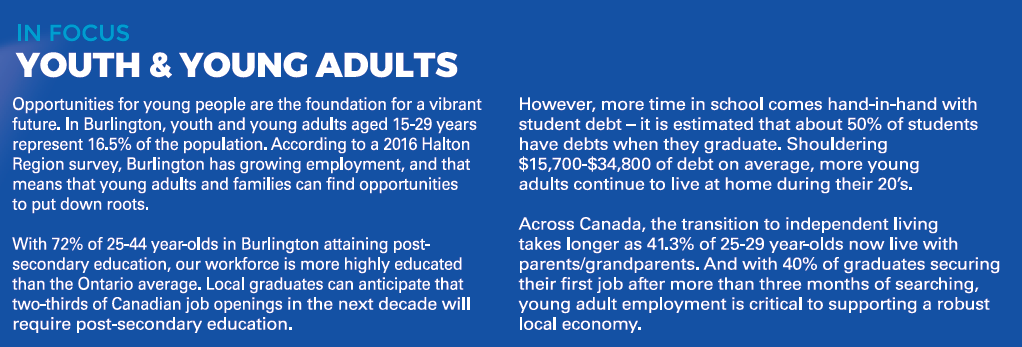
• Connecting young people with opportunities is at the heart of building a strong and sustainable social fabric within the community. In Burlington, 16.5 per cent of the population is aged 15 to 29 years.
• Vital Signs finds that Burlington’s workforce is more highly educated than the Ontario average. Of those aged 25 to 44, 72 per cent have a post-secondary college or university education. This is good news as trends indicate that two-thirds of Canadian job openings in the coming decade will typically require post-secondary education or be in management occupations.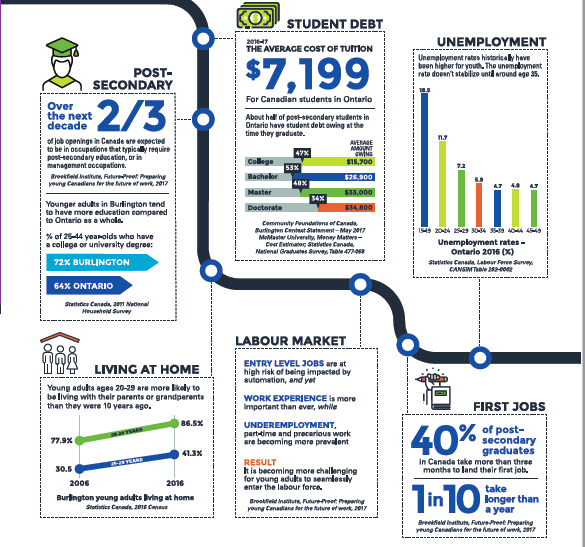

• The number of reportable mental health-related occurrences was 1,656 in 2011 and rose to 3,102 as of 2016. This means Halton Regional Police have experienced a startling 87 per cent increase in mental health-related occurrences involving police.
• In 2016-2017, Joseph Brant Hospital’s Emergency Department had a total of 2,156 visits, an increase of 15% over 2011-2012, and 302 visits among those less than 18 years of age, which represent a 63 per cent increase over 2011-2012.
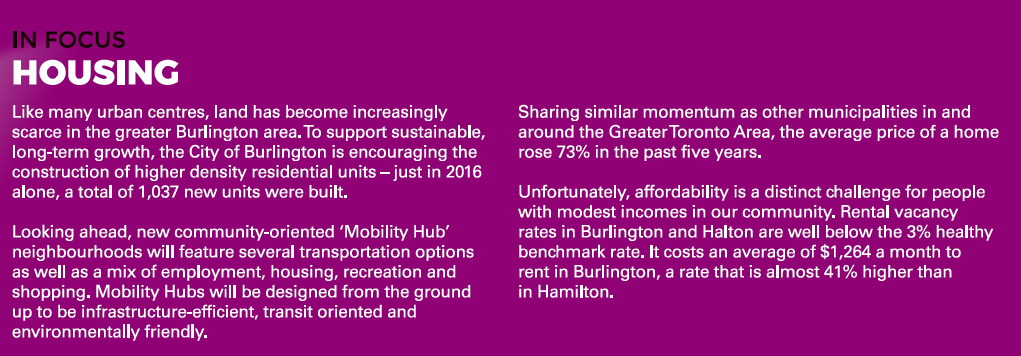
• Average housing prices rose from $454,627 in 2012 to $785,851 as of June 2017 – a staggering 73 per cent increase.
• 51.5 per cent of Burlingtonians live in single detached homes, 23.2 per cent in row houses or semis and 25.3 per cent live in apartments.

• Halton Region is excelling at waste diversion – in 2015 alone, almost 57 per cent of the region’s waste from landfills was diverted. Efforts to reduce, reuse and recycle have led Halton to be ranked tenth amongst 243 Ontario locations.
• Local waters are cleaner. Hamilton Harbour has benefited from aquatic health improvements as well as improved water bird habitats. Vegetation has returned to Cootes Paradise Marsh and a multi-year habitat restoration project is being led by BurlingtonGreen in Beachway Park.

• Burlington’s senior population is growing – so much so that seniors are now our single fastest growing demographic. In the past five years alone, Burlington has seen a 18.9 per cent growth in our senior population compared to just a 1.3 per cent increase among those younger than 65.
• The wait list for long-term care housing is on the rise. Since 2013, wait lists have increased by more than 20 per cent. This means that right now, 2,616 people are on the wait list for one of 1,279 spaces. On average, only 32 spaces become available each month.
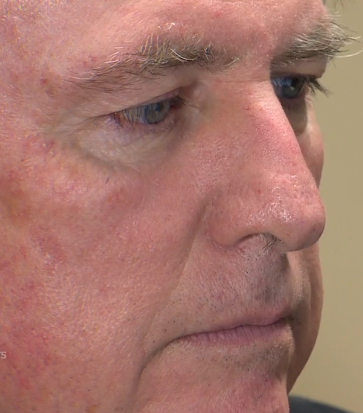
Ron Foxcroft, Chair of the Burlington Foundation.
“Vital Signs serves two significant purposes,” says Ron Foxcroft, chair of the Burlington Foundation Board of Directors. “First, it enables Burlington Foundation to focus our leadership efforts and granting program on the most critical areas of need. Second, it’s a valuable reference tool for other local stakeholders to connect the dots between people, numbers and opportunity.”
“Vital Signs is about connecting people to numbers in ways that foster new understanding,” says Colleen Mulholland, President and CEO, Burlington Foundation. “As a community convener, the report helps guide us in our leadership role where we encourage conversation and support collaboration around pressing issues. Whether it’s championing access to mental wellness programs which continues to be a focus for us, helping seniors live more independently, or helping young people transition to the workplace ensuring a greater sense of belonging to community, we’re connecting opportunity to action.”
Due to the release schedule of the 2016 long form Census data, Vital Signs will be published in two parts. In early 2018 the Foundation will share the latest local information about Poverty, Transportation, Work, Newcomers and Inclusivity.
As part of its commitment to incorporate learnings from the Vital Signs Report, Burlington Foundation announced a one-year partnership with Royal Bank of Canada that focuses on supporting youth and young adults as they transition into the workforce. This one-year commitment will focus on bringing together leaders from diverse sectors, as well as young adults, to engage in dialogue and address the opportunities and obstacles youth face as they seek employment.
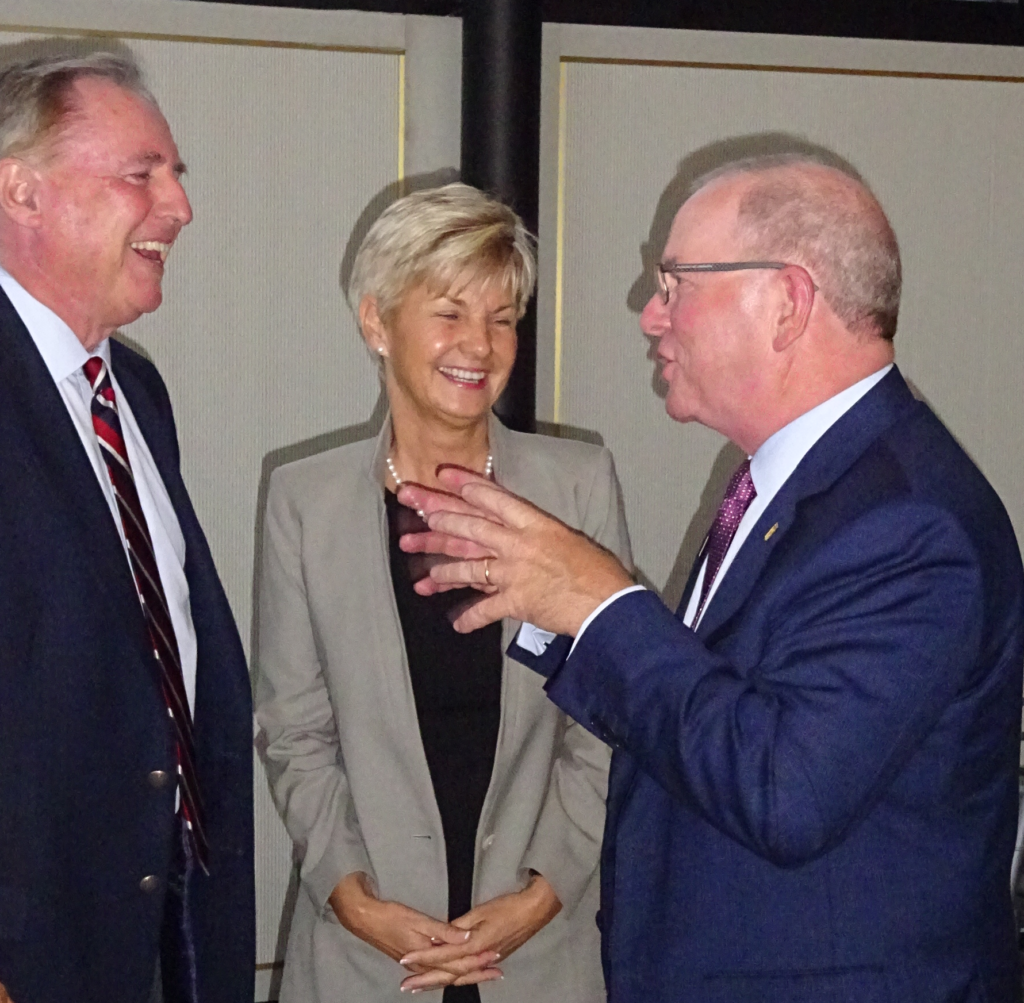
Ron Foxcroft on the left with Francine Dyksterhuis, Regional President of Southwestern Ontario, RBC and retiring Royal Bank vice president John Lever.
“As leaders within our communities, both RBC and the Burlington Foundation, have the ability to bring attention to issues impacting the Halton community through research, speaking and convening,” says Francine Dyksterhuis, Regional President of Southwestern Ontario, RBC. “Working together has never been more urgent. All sectors must join forces and mobilize efforts, energy and expertise to improve near-term employment outcomes as well as develop the evolving hard and soft skills of our young people that will be required across all sectors.”
The partnership will include an innovative educational event this winter.















